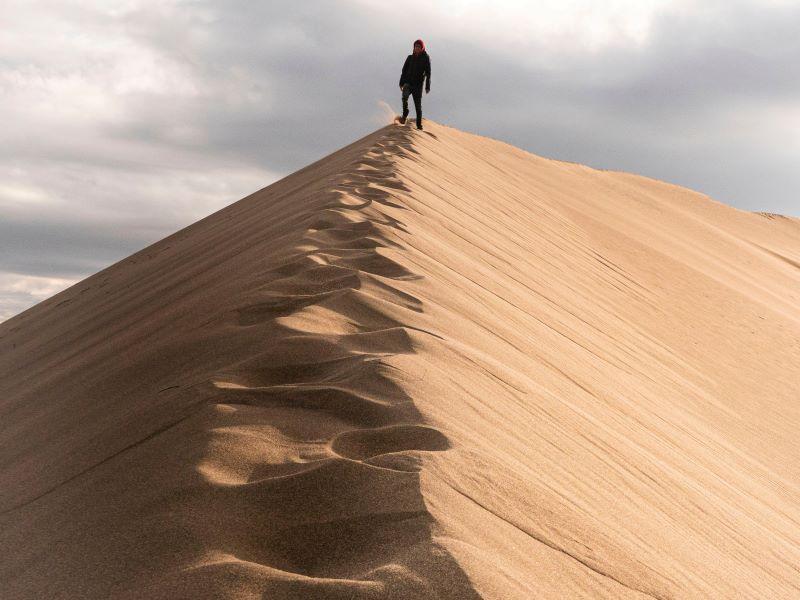This video will cover:
00:21 Introducing the concept of an “explorer mindset”
00:57 How to build resilience through practice
01:49 How to develop an exploratory mindset

This video will cover:
00:21 Introducing the concept of an “explorer mindset”
00:57 How to build resilience through practice
01:49 How to develop an exploratory mindset
Hello, my name is Portia Hickey. I’m an organisational psychologist and co-creator of the Thrive Matters platform.
I’m here to talk to you today about how you can foster in yourself, and your students, more of an explorer mindset during the pandemic.
The idea behind the explorer mindset came from research that was conducted by the Møller Institute, which is part of Churchill College at Cambridge University.
They found that those who transform organisations through their leadership share a number of characteristics, such as a natural curiosity, resilience, preparedness and a sense of higher purpose. The great thing about thinking about this mindset as an explorer mindset is that it’s made up of characteristics that we can really practise, as well as teach.
I think the first thing to remember is that resilience is really like a muscle. The more we actively develop it, the stronger it’ll be, it’ll get. It isn’t a situation where you either have it or you don’t.
The longer the pandemic goes on and we’re affected by the boredom of lockdown and aspects like that, the more we can lose sight of the fact that this really is an extraordinary event. It’s completely normal that the level of uncertainty, the level of unpredictability and threat that’s part and parcel of this pandemic triggers in most, if not all, of us anxiety to varying extents.
So, if we can shift our mindset away from the fear or out of that fearful mindset, and into more of an exploratory mindset, this helps us adapt and learn. So how could we do that?
First of all, you really need to just dedicate time to exploration. So dedicate time to get curious and explore. When you fear that the world might be changing or is changing, then get you and your students to dedicate time to explore that sense of change. The key is to feel curious.
No doubt as faculty you‘ve spent significant time planning and re-planning for the events triggered by the pandemic. In the leadership world we call this "scenario planning" and whether you know it or not, probably a lot of you have become expert scenario planners. But often the short-term focus and the focus on planning gets in the way of being curious and exploratory.
So what’s really important is to set yourself a longer term time frame to get curious about. So at least two years, but even longer is even better.
And don’t focus on planning, just focus on the exploration. The key is feeling curious.
Finally, encourage collaboration. This process, this exploration, is a perfect opportunity to collaborate with others so don’t do it alone and don’t ask your students to do it alone. Get people together to do this, and this collaborating together to explore will create a sense of connectedness, not just with each other but also a sense of working on something that’s bigger than just yourself. And this is even more important given we’re starved for social contact currently.
So, I hope you can carve out some time to get exploring and to practise your explorer mindset.
Portia Hickey is co-creator of Thrive Matters and an associate of the Møller Institute at Cambridge University.
For more resources on this subject, see our spotlight collection on creativity in higher education.
comment